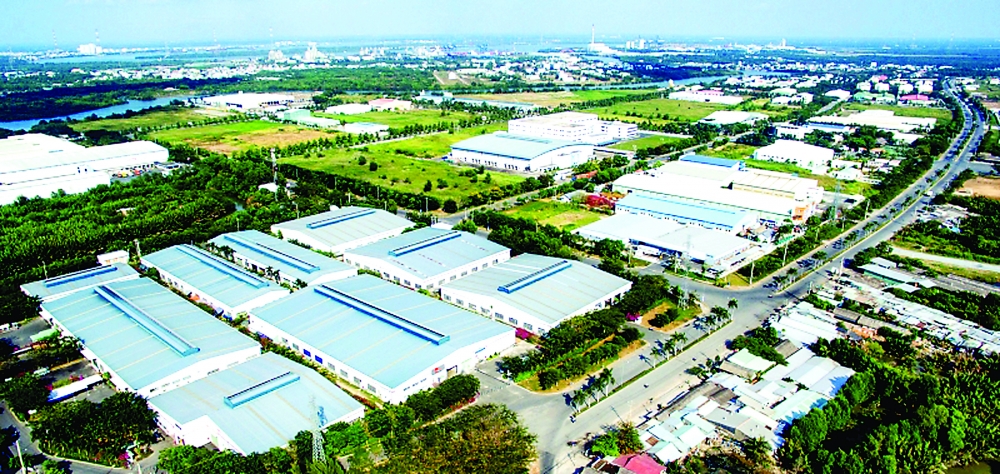
An overview of the Sai Dong Industrial Park.
Industry sector recovery
Data from the Hanoi Department of Industry and Trade showed that in the first half of this year, despite the lower year-on-year growth of the industry sector (7.71 percent compared with 7.97 percent in the first six-month period of 2018), industrial production experienced a strong 8.41 percent recovery in the second quarter compared to 6.94 percent in the first.
In the first six months, Hanoi’s key industries acquired new machines and equipment and improved their competitiveness, applying new technologies to create higher quality products. During this period, the city has approved the establishment of three new IPs, bringing the total to eight since 2018. Most of the current IPs have full occupancy.
Deputy Director of Hanoi Department of Industry and Trade Tran Thi Phuong Lan attributes the slowdown in the growth of Hanoi’s industrial sector to production cuts by some companies and/or their relocation. For example, General Motors Vietnam Co, Ltd transferred its automobile assembly line to the Vietnamese automaker VinFast in Hai Phong. Yamaha Motor is reducing the number of motorcycles, while Hai Ha and Hai Chau Confectionery Joint Stock Companies have moved their plants to Hung Yen Province.
Despite efforts by the municipal Department of Industry and Trade and related units to facilitate the establishment of new IPs and draw businesses into IPs, progress lags behind expectations. Specifically, the three new IPs approved early this year are still completing investment procedures and none of them have been built.
The existing IPs attracted six new investment projects this year with total capital of US$4.7 million and 10 expanded projects worth US$55.2 million. However, in this period, management boards of Hanoi IPs and Export Processing Zones (EPZs) also handled the suspension of six projects and reduced investment of US$45 million in five other projects.
In general, investment in technical infrastructure of new IPs remains slow. Production and business activities of many Vietnamese enterprises remain unstable with low competitiveness and labor productivity.
Foreign investment in hi-tech, clean technologies
Currently, Hanoi is the only locality in the country with a policy on developing key industrial products, creating 61 such products with revenues of 1 trillion VND or more.
Le Hong Thang, Director of the municipal Department of Industry and Trade, said the city has adopted policies to develop support industries. For example, the Ha Noi Southern Support Industrial Park has adopted many support policies for high tech manufacturers such as land lease periods of up to 70 years or bank loan supports.
The Department welcomes investment projects using high and environmentally friendly technology in industrial parks. It urges businesses to increase investment capital in high tech equipment and in synchronous production lines and apply information technology in production, which can help them make the best use of land.
|
Hanoi now has 70 industrial clusters covering 1,337 hectares with about 3,100 operational production facilities. Three of them are concentrated industrial clusters, namely Chuong My covering 50 hectares, Son Tay 70 hectares, and Phuc Tho 55 hectares. This is the basic condition to develop craft villages and the rural economy, and to attract investment to develop the city’s advantageous industrial sectors. |


















